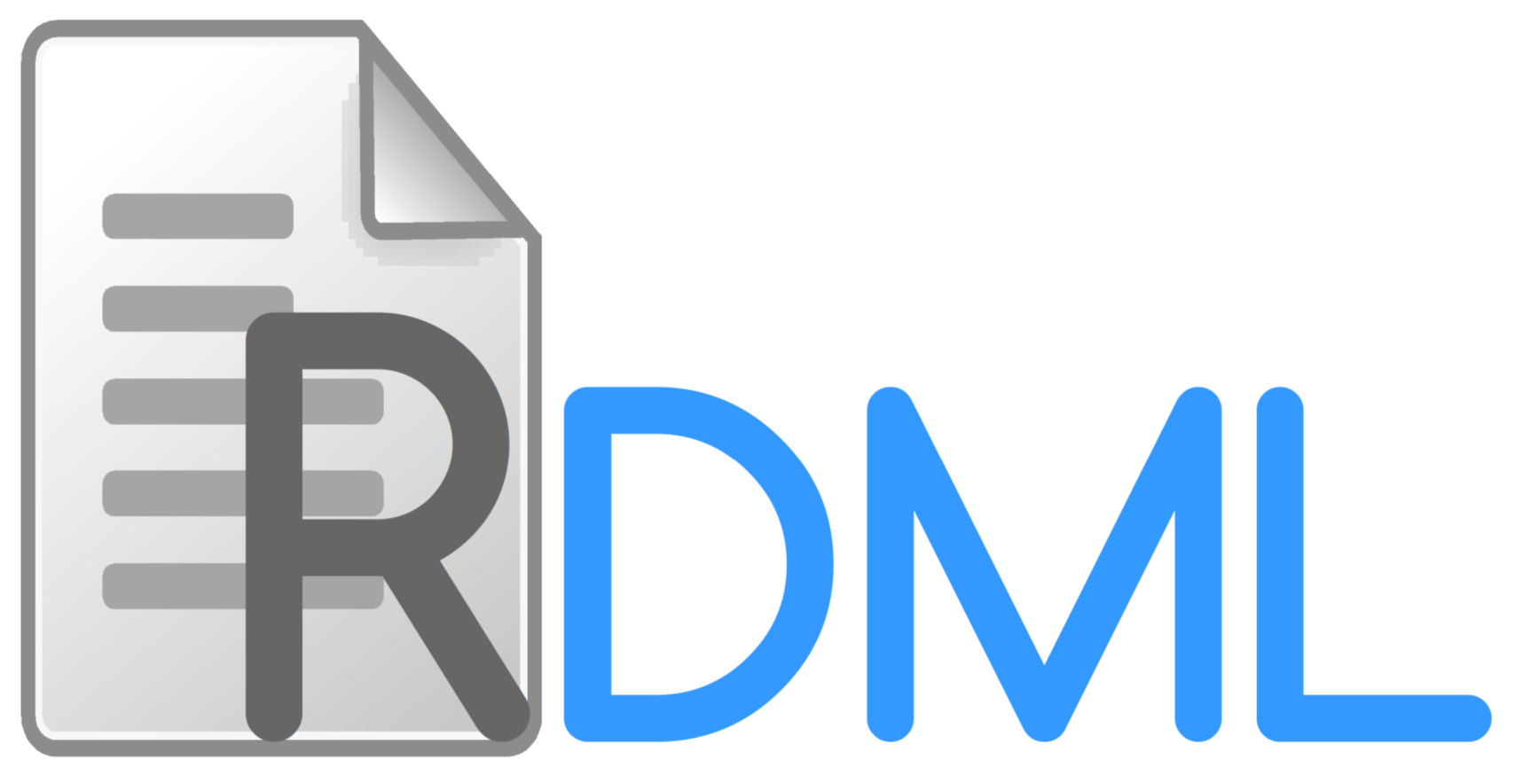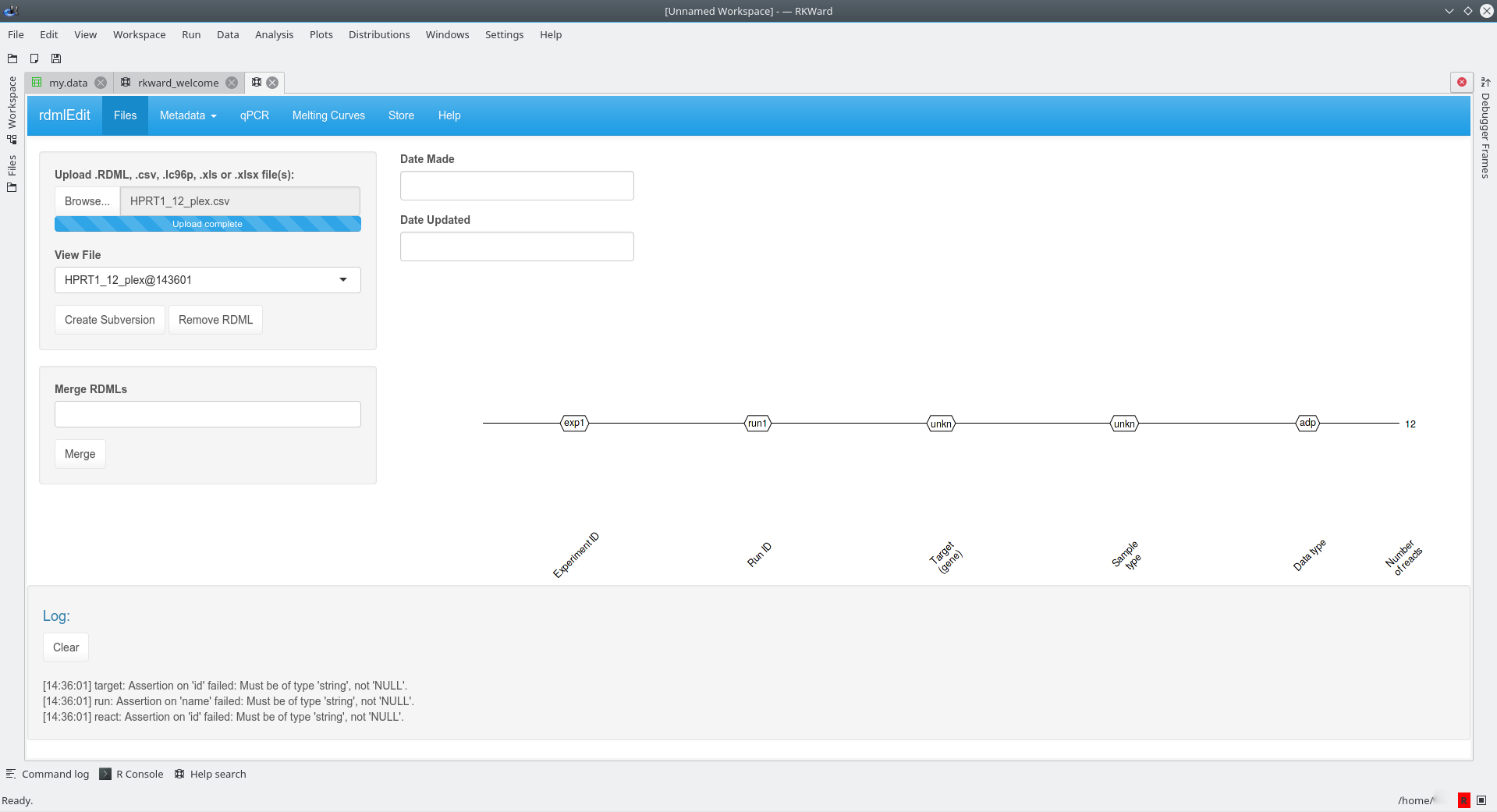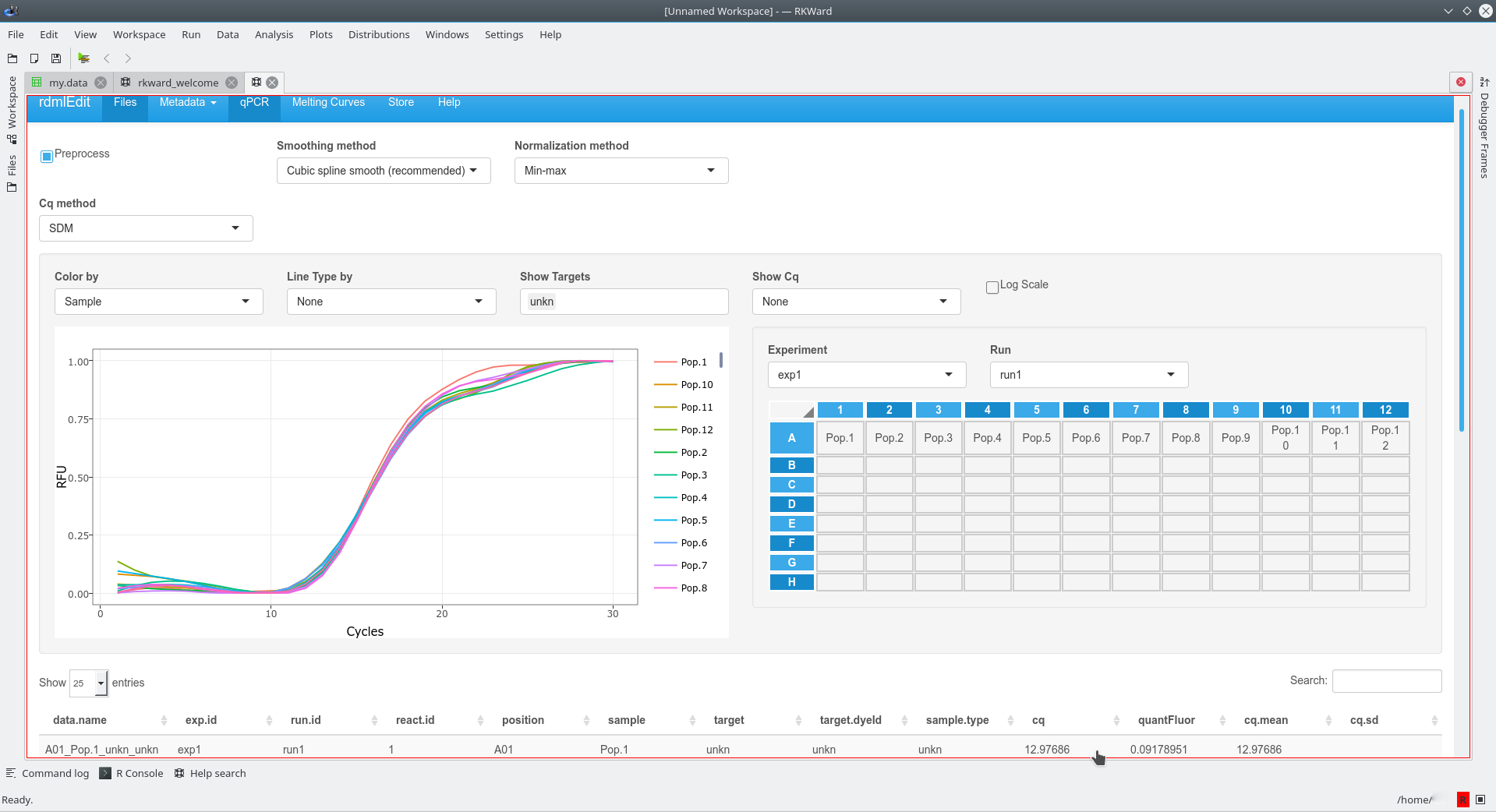
The hardware and bandwidth for this mirror is donated by METANET, the Webhosting and Full Service-Cloud Provider.
If you wish to report a bug, or if you are interested in having us mirror your free-software or open-source project, please feel free to contact us at mirror[@]metanet.ch.

The RDML package is published in Oxford Bioinformatics: Stefan
Rödiger, Michał Burdukiewicz, Andrej-Nikolai Spiess, Konstantin
Blagodatskikh; Enabling reproducible real-time quantitative PCR
research: the RDML package, Bioinformatics, https://doi.org/10.1093/bioinformatics/btx528
(see also citation()).
Imports qPCR data from RDML v1.1 format files (Lefever et al. 2009) and transforms it to the appropriate format of the qpcR package (Ritz et al. 2008, Spiess et al. 2008) or chipPCR package. RDML (Real-time PCR Data Markup Language) is the recommended file format element in the Minimum Information for Publication of Quantitative Real-Time PCR Experiments (MIQE) guidelines (Bustin et al. 2009).
The stable version of the RDML package for R is hosted
on CRAN and can be
installed as any R package.
You can install the latest development version of the code using the
devtools R package.
# Install devtools, if you haven't already.
install.packages("devtools")
library(devtools)
install_github("kablag/RDML")The manual is available online.
RDML imports various data formats (CSV, XMLX) besides
the RDML format. Provided that the raw data have a defined structure (as
described in the vignette) the import should be done by a few clicks.
The example below shows the import of amplification curve data, which
were stored in a CSV file. The function rdmlEdit() was used
in the RKWard IDE/GUI for further
processing. rdmlEdit may be also accessed as a web server
(http://shtest.evrogen.net/rdmlEdit/).

Once imported enables rdmlEdit() and other functions
from the RDML package complex data visualization and
processing in the R statistical computing environment.

These binaries (installable software) and packages are in development.
They may not be fully stable and should be used with caution. We make no claims about them.